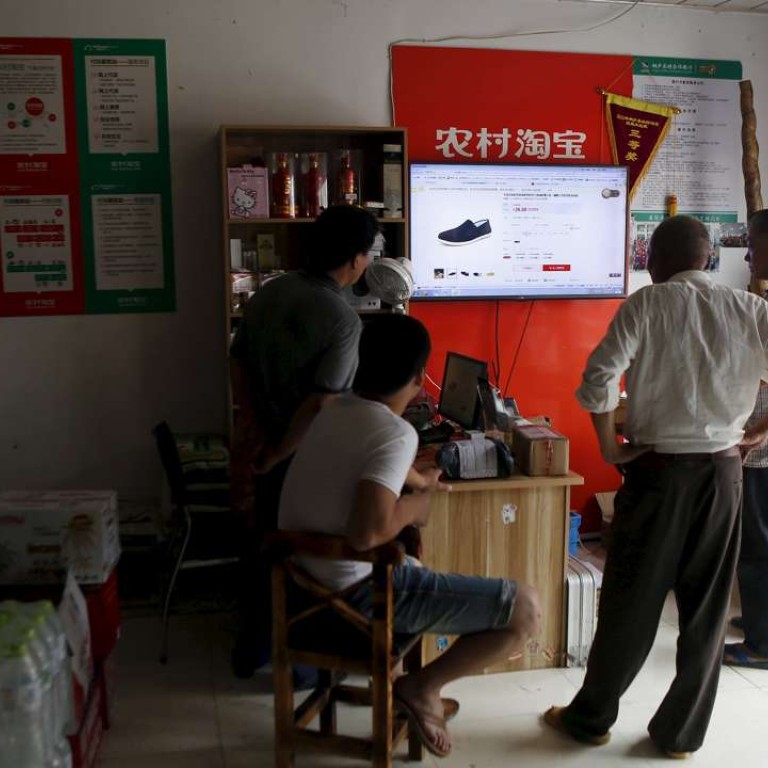
Business leaders meeting in China propose global e-commerce platform to benefit smaller firms
The business outreach arm of the G20 summit has proposed to world leaders an initiative to create a global e-commerce platform to knock down barriers in online trade amid growing anti-globalisation fervour.
The so-called B20 group, comprising business leaders from G20 countries, raised the idea of an electronic world trade platform, or eWTP, as a policy recommendation to be considered during the two-day summit which opened in Hangzhou on Sunday.
“E-commerce is an emerging area of global trade but we don’t have a clear framework [on regulations for electronic trade],” said Thomas Bernes, a distinguished fellow with the Centre for International Governance Innovation (CIGI), an independent think tank in Canada. “The trade ministers of G20 will need to take it up when the eWTP is included in the list policy recommendations by B20.”
The eWTP, a concept first raised by Jack Ma, founder of Chinese e-commerce giant Alibaba Group, in March at the Boao Forum, aims to reduce barriers for small and medium-sized (SMEs) enterprises in cross-border e-commerce. Alibaba is the owner of the South China Morning Post.
With the rising tide of protectionism, the biggest barriersare seen as the wide variety of market specific regulations with which products must comply, burdensome customs procedures, and access to logistics and financing. On top of that, a number of governments are contemplating raising taxes and tariffs on small package shipments.
Globalisation is not a threat to the economy or a threat to jobs, but it means [more] jobs
If the idea takes off, smaller merchants under the eWTP, which would be an open platform, will be able to sell their products to global consumers with fewer logistics procedures and reduced red tape, thus lowering costs.
Anti-globalisation fervour has grabbed the attention of many people who are worried that it is a threat to the economy, Alibaba’s Ma told business leaders from leading economies at the B20 summit on Saturday.
“Globalisation is not a threat to the economy or a threat to jobs, but it means [more] jobs,” Ma said.
Over the past few decades globalisation has helped 20 per cent of large companies by facilitating trade, so the focus should now be on giving more opportunities to smaller businesses, he said.
Ma urged governments around the world to embrace policy changes to make trade easier. “Trade is the only way to solve business problems, but it’s not a weapon to solve political problem,” he said.
The explosive growth of e-commerce worldwide is spawning new opportunities for smaller merchants as well as e-commerce companies such as Alibaba and Amazon.
Bernes of CIGI said e-commerce is where the future lies, with the eWTP initiative likely to benefit companies like Alibaba and Amazon – as well as small businesses.
Michael Evans, president of Alibaba, said tens of millions of merchants are connecting two billion consumers in China and the world through the company’s e-commerce platform.
Most of the merchants are not big world brands and hope to see a gateway likes the eWTP in order to give them global reach, he said.

